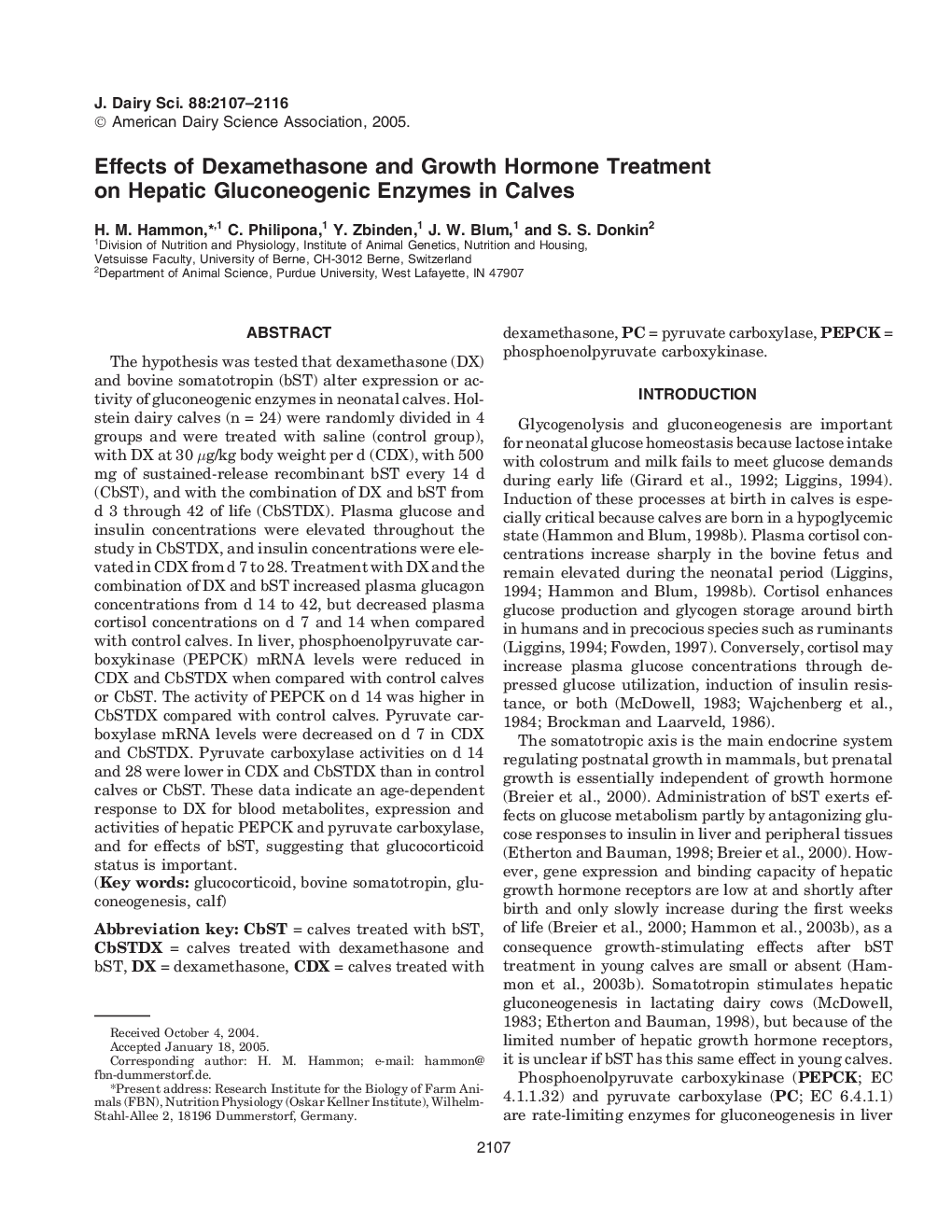| Article ID | Journal | Published Year | Pages | File Type |
|---|---|---|---|---|
| 2441485 | Journal of Dairy Science | 2005 | 10 Pages |
Abstract
The hypothesis was tested that dexamethasone (DX) and bovine somatotropin (bST) alter expression or activity of gluconeogenic enzymes in neonatal calves. Holstein dairy calves (n = 24) were randomly divided in 4 groups and were treated with saline (control group), with DX at 30 μg/kg body weight per d (CDX), with 500 mg of sustained-release recombinant bST every 14 d (CbST), and with the combination of DX and bST from d 3 through 42 of life (CbSTDX). Plasma glucose and insulin concentrations were elevated throughout the study in CbSTDX, and insulin concentrations were elevated in CDX from d 7 to 28. Treatment with DX and the combination of DX and bST increased plasma glucagon concentrations from d 14 to 42, but decreased plasma cortisol concentrations on d 7 and 14 when compared with control calves. In liver, phosphoenolpyruvate carboxykinase (PEPCK) mRNA levels were reduced in CDX and CbSTDX when compared with control calves or CbST. The activity of PEPCK on d 14 was higher in CbSTDX compared with control calves. Pyruvate carboxylase mRNA levels were decreased on d 7 in CDX and CbSTDX. Pyruvate carboxylase activities on d 14 and 28 were lower in CDX and CbSTDX than in control calves or CbST. These data indicate an age-dependent response to DX for blood metabolites, expression and activities of hepatic PEPCK and pyruvate carboxylase, and for effects of bST, suggesting that glucocorticoid status is important.
Keywords
Related Topics
Life Sciences
Agricultural and Biological Sciences
Animal Science and Zoology
Authors
H.M. Hammon, C. Philipona, Y. Zbinden, J.W. Blum, S.S. Donkin,
